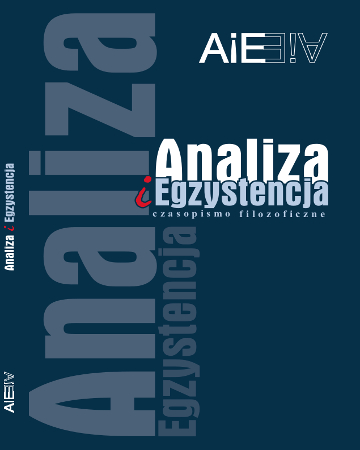Dwie (anty)filozoficzne „gramatyki” Ludwiga Wittgensteina
Two (anti)philosophical Grammars of Ludwig Wittgenstein
Author(s): Ewa Czesna, Adam NowaczykSubject(s): Philosophy, History of Philosophy
Published by: Wydawnictwo Naukowe Uniwersytetu Szczecińskiego
Keywords: Wittgenstein; logical grammar; logical constants; ontological presumptions; possible worlds; states of affairs; facts; ordinary language; language game; form of life; grammatical statement; philosophy
Summary/Abstract: Wittgenstein is the author of two conceptions of “grammar”, that were meant to betools of reaching the same goal: discrediting of the traditional, i.e. “metaphysical” questions of philosophy. His early conception concerns logical grammar being thelanguage of logic notation, which is devoid of logical constants. This idea was supportedby the ontological thesis that there are no logical objects. In fact, it was notindispensable for achieving the intended purpose, since the elimination of philosophicalproblems was provided by the semantic argument that the only sensiblestatements are those of the natural sciences.The second concept of grammar, presented in the writings of the later Wittgenstein,seems more ambiguous. Grammar is a set of rules of the language game,having a status of grammatical statements. Examples of such statements are diverse,and desirable, according to the authors, reformulation of them all into concrete ordersor prohibitions seems problematic. In the Investigations Wittgenstein distinguishes between deep and surface grammar, which serves to determine the proper task ofphilosophy as description of the deep grammar (especially the grammar of philosophically relevant words). In this sense New Philosophy is a kind of philosophicalgrammar. Wittgensteinian grammar is also anti-philosophical, as it aims at theelimination of erroneous (pseudo)metaphysical claims derived from misleadingforms of surface grammar. Despite the differences in the concepts of language andgrammar in the early and late Wittgenstein, he has not changed his critical approachto the traditional philosophical questions.
Journal: Analiza i Egzystencja: czasopismo filozoficzne
- Issue Year: 2013
- Issue No: 23
- Page Range: 45-69
- Page Count: 25
- Language: Polish

